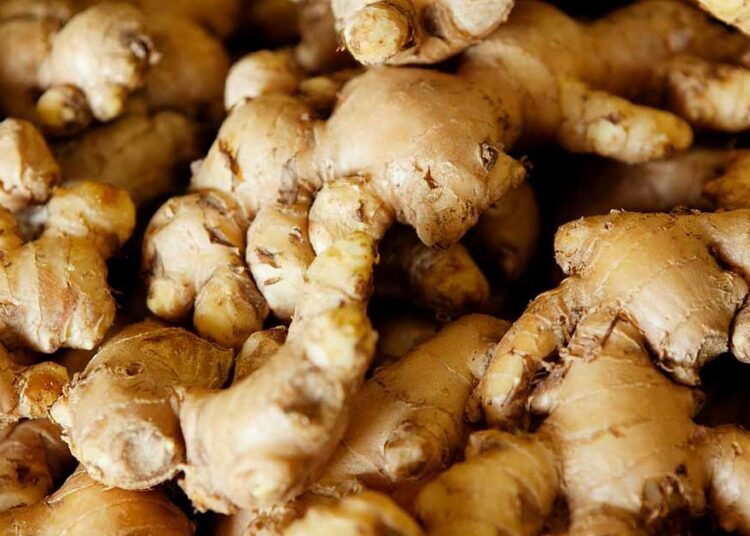Nigeria’s revenue from ginger exports increased by 17 per cent to hit N10 billion in the second quarter of 2023 compared to N4.6 billion in the same period of 2022.
Data gleaned from the National Bureau of Statistics show that the country’s export value of the crop has been increasing steadily. Ginger exports increased from N1.13 billion in Q2 2018 to N1.24 billion in the same period of 2019.
It increased in Q2 2020 from N1.57 billion to N3.75 billion in 2021. The growth was maintained in 2022 as export earnings from the crop grew to N4.6 billion. In Q2 2023, it doubled to N10 billion.
“Some of the improvements realised in foreign exchange earnings owe to the improvements made by ginger farmers to make the crop cleaner and more attractive for exports,” Mikah Adamu Sule, deputy president of the National Ginger Association of Nigeria (NGAN), said.
However, Nigeria, the largest producer of ginger in Africa, and the second largest in the world after India, is reaping only a modest fragment of the $3 billion global ginger market, despite its record N10 billion export value in Q2, its highest in six years.
“It would make sense if more ginger are grown and facilities are set up locally to process some percentage of the harvest while the excess is exported. This will not only improve revenue, it’ll also provide jobs and create wealth,” said Ugochukwu Ideato, a ginger farmer.
“I think we need processing plants to extract ginger oil. I was doing research last week and found out that the value for one tonne of ginger oil is 35 times more than one tonne of ginger itself,” another Twitter user, Bayode Tegbe said, speaking to the need for value addition to boost export potential.
Dairy Hills CEO, Kelvin Emmanuel, said Nigeria exports highly valuable agricultural commodities such as ginger and cocoa among others, at a giveaway and then spends billions in importing back their refined products into the country.
He said the Europeans buy ginger from Nigeria at $2,000 per tonne and get 35 times the value processing it into ginger oil.
Nigeria’s ginger production is put at 31 million metric tons, while demand is put at 65 million MT, leaving a supply-demand gap of 34 million MT, according to data from the Ministry of Agriculture.
Ginger is a highly sought-after commodity in Asia, Europe, and America. It is widely used in food seasonings and the root crop is increasingly seeing local and global demands.





